Corporate Networking Events: Top 7 Strategies for Establishing Meaningful Connections
Corporate networking events present invaluable opportunities for professionals to forge connections, collaborate, and discover new business or career prospects. However, cultivating meaningful connections at these events extends beyond merely exchanging business cards. The objective is to establish authentic relationships that yield long-term personal and professional benefits. Below are Komet’s key strategies to maximise your participation in corporate networking events, from initiating impactful conversations to fostering relationships and maintaining follow-up communication.

1. Preparation is Key
Effective networking begins well before the event itself. Investing time in thorough preparation can significantly enhance your confidence and position you for productive conversations.
- Research the Guest List: If accessible, review the list of attendees in advance. Identify key individuals or companies you would like to connect with and familiarise yourself with their backgrounds. This ensures that your conversations are purposeful and well-informed.
- Set Clear Goals: Determine your objectives for the event. Are you seeking potential business partners, clients, or simply aiming to expand your professional network? Defining your goals will help direct your focus and efforts during the event, ensuring a more targeted approach to networking.
2. Arrive Early and Stay Engaged
Early arrival at a networking event provides the advantage of fewer attendees, facilitating initial conversations before the room becomes crowded. It also allows more time for you to engage with key individuals.
- Initiate Conversations: Take the initiative by introducing yourself to others, rather than waiting to be approached. A warm smile, firm handshake, and confident introduction can create a strong first impression, setting the tone for meaningful exchanges.
- Maintain Engagement: Remain present throughout the event. Participate actively in discussions, pay close attention to speakers, and maintain open body language. This demonstrates your willingness to engage and signals to others that you are approachable and invested in meaningful interaction.
3. Craft Thoughtful Conversation Starters
Mastering the art of conversation is essential for establishing meaningful connections. Steer away from generic, transactional questions like “What do you do?” Instead, opt for more thoughtful inquiries that encourage deeper engagement.
- Start with Contextual Questions: Ask questions relevant to the event or industry. Examples include, “What brought you to this event today?” or “Have you attended similar events recently?” These inquiries provide an immediate context, making it easier to establish rapport and sustain the conversation. For more ideas use this link!
- Show Genuine Interest: Engage sincerely with what the other person shares about their work, objectives, or challenges. Rather than focusing on what you stand to gain from the conversation, listen attentively and ask insightful follow-up questions to demonstrate genuine curiosity.
- Avoid Self-Promotion: While you may be eager to discuss your own work or company, avoid monopolising the conversation. Aim for a balanced dialogue where both parties have the opportunity to share insights, experiences, and perspectives.
4. Foster Genuine Relationships
Networking is more than the mere collection of contacts; it is about cultivating relationships that extend beyond the confines of the event. Establishing a genuine connection requires time and effort, but it ultimately results in more meaningful and enduring professional relationships.
- Identify Common Ground: As the conversation progresses, look for areas of shared interest or mutual experience. Discovering common ground lends a more personal dimension to the dialogue, making it memorable and fostering a deeper connection.
- Be Authentic: Authenticity is crucial in networking. People can often detect when interactions are transactional or disingenuous. Focus on creating honest, positive exchanges, as people are more likely to remember and seek further engagement with someone who is genuine.
5. Take Notes and Stay Organised
During large events, it is easy to meet several individuals and engage in numerous conversations. Staying organised is critical to ensuring that key points and valuable contacts are not forgotten.
- Take Quick Notes: After each conversation, jot down a few important details—such as on the back of a business card or in a digital note on your phone. Recording key discussion points will help you recall the individual and conversation when it’s time to follow up.
- Prioritise Contacts: Not every interaction will translate into a meaningful relationship. After the event, prioritise the contacts that align most closely with your goals and that you believe are worth pursuing for long-term engagement.
6. The Importance of Post-Event Follow-Up
Timely follow-up is critical for transforming initial introductions into lasting professional relationships. Without proper follow-up, even the most promising connection may fade.
- Send Personalised Messages: Within 24 to 48 hours post-event, send a brief but thoughtful follow-up message to key contacts. Reference specific details from your conversation to convey that you were genuinely engaged and interested. For example, “It was a pleasure meeting you at [Event Name]. I enjoyed our discussion on [topic] and would love to continue exploring potential collaboration.”
- Connect on LinkedIn: Add new contacts on LinkedIn to stay connected and keep the conversation going. Accompany your connection request with a personalised message that references your meeting.
- Offer Value: If feasible, provide something of value in your follow-up, such as a relevant article, introduction to someone in your network, or invitation to another event. Offering value without expecting anything in return can significantly strengthen your professional relationship.
7. Maintain and Nurture Relationships
Establishing connections is only the first step. To truly benefit from your network, it is essential to maintain and nurture these relationships over time.
- Regular Check-Ins: Periodically reach out to your connections, even when there is no immediate business need. A simple message inquiring about their well-being or sharing an interesting article can help keep the relationship active and warm.
- Offer Support: Networking is a reciprocal process. If appropriate, offer assistance or make valuable introductions to others within your network. Supporting your contacts without expecting anything in return helps foster stronger, mutually beneficial relationships.
Conclusion
Establishing meaningful connections at corporate networking events requires thoughtful preparation, active engagement, and consistent follow-up. By approaching each event with a clear strategy, using effective conversation techniques, and staying organised, professionals can build authentic relationships that yield long-term professional benefits. Whether you are seeking new business opportunities, potential partners, or mentorship, these strategies will empower you to maximise the potential of every networking event you attend.

